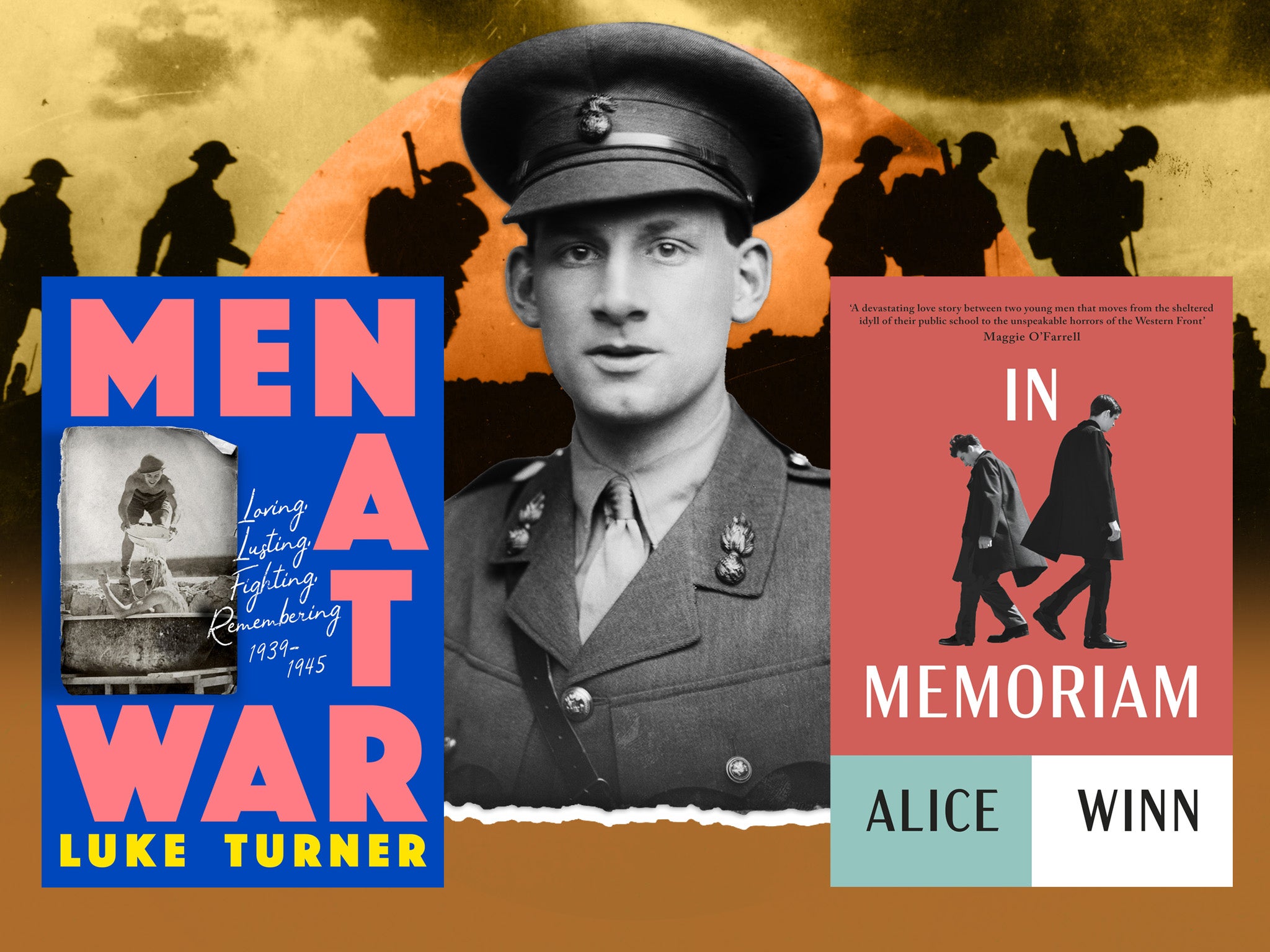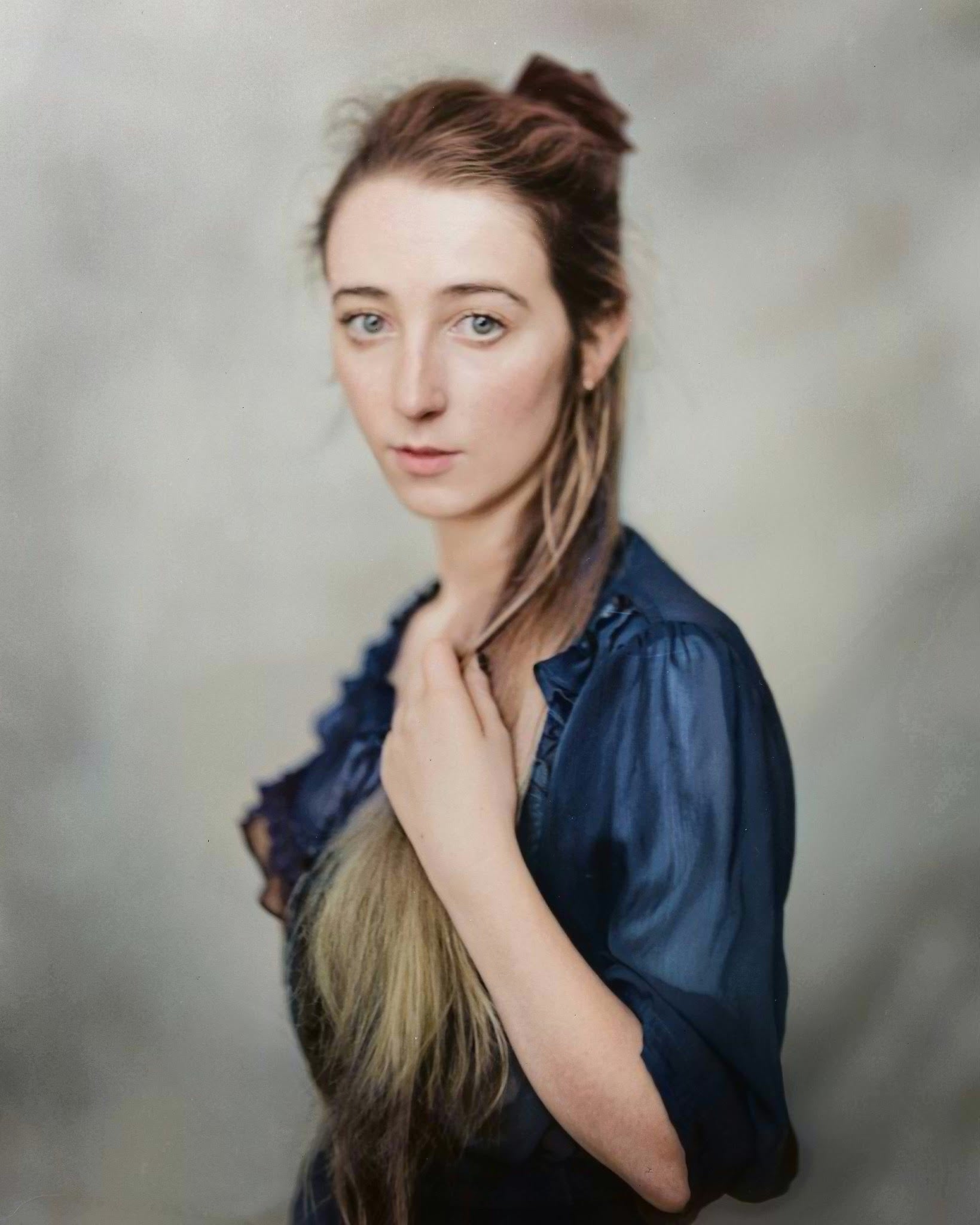‘It seems unlikely there wasn’t gay sex at the front’: The writers restoring queer lives into world war history
First World War poetry has always been defined by gay writers, so why is our idea of war still so heteronormatively masculine? Marcus Field speaks to two writers bringing questions of war, heroism and gender to the fore

Alice Winn is talking to me about her debut novel, In Memoriam, a love story between two young officers set in the trenches of the First World War. “It’s not as if I could find primary sources for what gay sex was like at the front,” she says, “but it seems unlikely that it never happened.”
She has a point. The homosexual feelings, if not the actual encounters, of officers such as Siegfried Sassoon and Wilfred Owen are clearly recorded in their poems and letters. In more concrete terms, 270 British soldiers were court-martialled during the conflict for “gross indecency”, as illegal homosexual activities were known. So yes, of course there was gay sex at the front.
Winn’s novel, which imagines these acts in an explicitly erotic way, is one of two new books that set out to challenge the stereotype of British masculinity in the 20th century’s two world wars. Luke Turner’s Men at War, released next month, is part-history, part-memoir, and explores the complex but underdiscussed spectrum of masculinity that defined the Second World War. Both books question the ideal of the straight, cisgender serviceman, who in films and fiction is too often portrayed as the only true hero of the conflicts. In these new accounts, fluid gender identities and queer sexuality are revealed to have been no barrier to courageous acts.
Winn, 30, a screenwriter living in New York, says that the initial inspiration for her book came from reading the digital archive of the newspaper at her old school, Marlborough, where Sassoon had also been a pupil. “I devoured all the papers from 1913 to 1919 and it was like nothing else I’ve ever read,” she says. What fascinated her about the papers was the real-time reports of the war that older and former pupils sent back. “At first they are all excited,and then they write about gallant deaths, and then it changes tenor as the horror sets in.”
This rich archive provides much of the backdrop to In Memoriam, but in the foreground is the story of Henry Gaunt and Sidney Ellwood, two school friends whose sexual relationship blossoms just behind the front lines.
“I had also just read Goodbye to All That, Robert Graves’s account of the war, so Graves and Sassoon form the DNA of Gaunt and Ellwood,” Winn explains. “I changed their personalities entirely, but planted some of their characteristics.” While Sassoon had well-documented homosexual relationships, Graves, who married twice, was circumspect about his own sexual feelings towards other men, describing himself as a “pseudo-homosexual” who was “honourably chaste and sentimental”.
Henry Gaunt, who shares many similarities with Graves, shows no such inhibitions once he’s confident his feelings are reciprocated. And Winn is clear that Grant and Ellwood are not simply confused adolescents, but homosexual men in love. They are also heroes who, like Sassoon and Owen, lead daring raids on enemy positions and are both awarded the Military Cross.
Perhaps because there are so many tough-guy movies and novels about the Second World War, the image of the heroic soldier or airman in that conflict is even more stereotypically male. This is the misconception that Turner aims to correct in Men at War.
As a child in the 1980s, Turner had a fascination for anything to do with the Second World War, lapping up jingoistic movies and building Airfix kits of fighter planes and bombers. However, as he began to explore his own fluid sexuality, he started to question the heroic ideal, wondering what roles men of less fixed sexual and gender identities might have played in the fight against fascism. His book presents some of the remarkable stories he has uncovered, threaded through with his own family history.

“I do feel that to be slightly outside the default, or ‘normal’, masculinity gives you an acute view on it,” Turner tells me. “And I’ve never quite fitted into heterosexuality or homosexuality or, increasingly, bisexuality. So I find masculinity fascinating because I don’t feel part of any group.”
For Turner, the “otherwordliness” of wartime conditions represent a period in Britain when many people found themselves free of repressive social norms and able to explore their feelings more honestly. “It was sexually a very radical time,” he says. But what comes out most strongly from his book are not just the homosexual or bisexual experiences of war heroes, but an embryonic picture of the broad spectrum of masculinity that is still emerging today. “I was very adamant that I didn’t just want this to be a book about sexuality,” says Turner. “I wanted to include men who were heterosexual too but who sit outside expectations of a vigorous war-like masculinity.”
So while the book includes the stories of gay men like RAF flying ace and Battle of Britain hero Ian Gleed, and the gay army officer and novelist Dan Billany, Turner also explores the lives of courageous men who did not conform to gender stereotypes. Among these is Bertram Warr, a young Canadian poet and pacifist who came to England before the war and who, after battling with his conscience, served in the RAF as a bomb aimer in night raids over Germany, one of the most dangerous jobs of the conflict. He was killed on a raid in 1943, leaving behind sheaves of existentialist verse.

Another unconventional hero for Turner is Henry Danton, who became a ballet dancer after being dismissed from active service in 1940. Aged 101 (he died in 2022 at 102), Danton told Turner in an interview that he failed as an army officer because he had a psychological aversion to killing, although he wasn’t a conscientious objector. “He wasn’t gay,” says Turner, “but he was so complicated; so confident in his body but knew he couldn’t fight, but obviously so courageous that one evening he continued to dance onstage when a flying bomb came over and the whole audience was under the seats.”
For Turner, a major impetus for writing the book is to protest against the way he feels the Second World War has been “exploited for Brexit and Covid, and around the war in Iraq and Afghanistan”, with veterans held up as a uniform type of British masculinity. “It’s not representative and does these men a real disservice,” he says.
Some people in LGBTQ+ circles don’t want queer people to be warriors. I think sometimes there’s a feeling that that’s aggressive hetero-masculine behaviour. But I think that’s wrong
“That’s why I was keen to celebrate the role of the war in pioneering transgender surgery,” continues Turner, whose book includes the story of Roberta Cowell, an RAF Spitfire pilot who transitioned after the war and became the first British trans woman to have vaginoplasty in 1951. “The techniques that are now used in transgender surgery came directly from military science and I think that’s an incredible story that’s not really very well known.”
Turner is aware of the potential controversies his book may stir up. Among them, he says, is “that some people in LGBTQ+ circles don’t want queer people to be warriors. I think sometimes there’s a feeling that that’s aggressive hetero-masculine behaviour. But I think that’s wrong, as much as the homophobic view that queer people can’t fight is wrong.” It’s also not an anti-war book, he says. “I think you have to fight sometimes. I don’t think there was any other way of stopping Nazism. I had to examine myself and ask if I was a pacifist, and the answer is no.”
Both Winn and Turner’s books are now part of a growing history and literature that provide a corrective to past accounts of the kind of men who won the world wars. In Memoriam sits alongside the Regeneration trilogy, Pat Barker’s series of historic novels in which Sassoon, Graves and Owen appear as characters, doing the valuable service of reminding us that the real-life queer men who inspired these books were just as likely to act heroically in the trenches as the straight men they fought alongside.
Meanwhile, Turner’s book joins MP Chris Bryant’s recent groundbreaking history, The Glamour Boys, which tells the story of the queer parliamentarians who opposed appeasement and then fought bravely against the Nazis.
At a time when masculinity is often described as toxic, Turner says his revisionist history instead presents it as something to be celebrated. “I think that makes the book very contemporary,” he says. “I’m holding it up and saying it’s not as binary as people assume. There’s a lot to be positive about here.”
‘In Memoriam’ by Alice Winn (Viking, £14.99) is out now. ‘Men at War: Loving, Lusting, Fighting, Remembering 1939-1945’ by Luke Turner (Weidenfeld & Nicolson, £18.99) is published on 27 April
Join our commenting forum
Join thought-provoking conversations, follow other Independent readers and see their replies
Comments


Bookmark popover
Removed from bookmarks